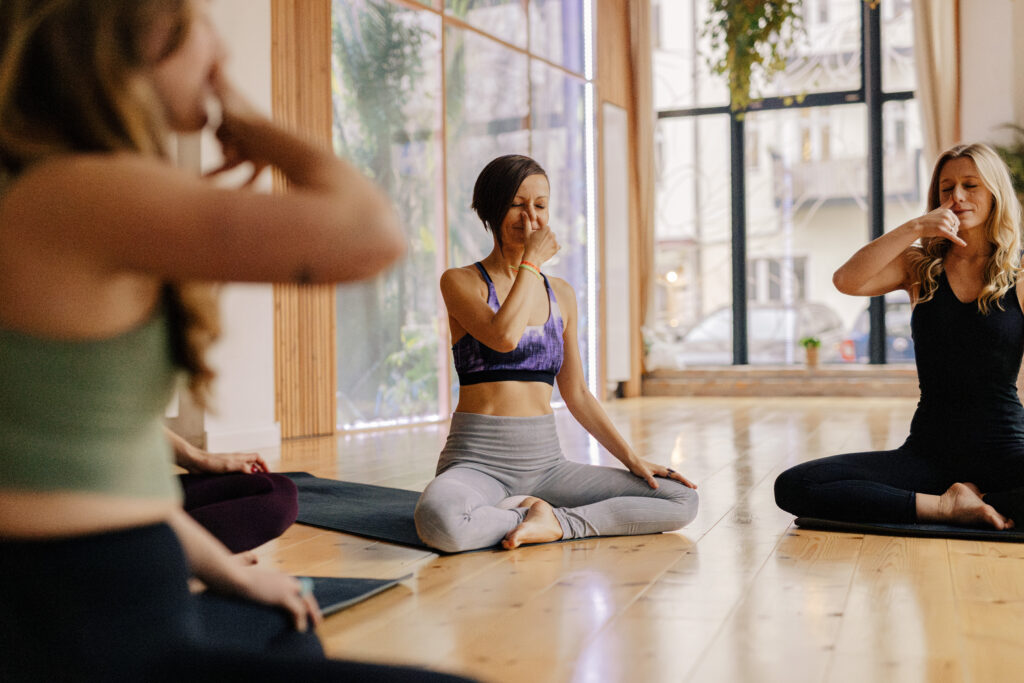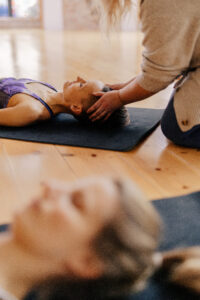Overcome self-doubt achieve more self-confidence with meditation and yoga

Overcome self-doubt: achieve more self-confidence with meditation and yoga
Almost everyone knows that inner voice that whispers: “You are not good enough”, “What if you fail?”, “Others are better than you”. These self-doubts arise in many moments - be it when we are facing professional challenges, are unsure in social situations or are trying to start a new relationship. Self-doubt can be paralyzing. They prevent us from reaching our full potential and leave us in a constant state of uncertainty .
But such doubts are by no means unusual. They are part of being human. They are beliefs that are often deeply rooted in us - perhaps through difficult childhood experiences or through failures we have experienced throughout our lives. Comparing ourselves to the seemingly perfect lives of others, especially on social media, can also shake our self-esteem. But how do we learn to deal with these doubts?
One of the most effective ways to overcome self-doubt is meditation . It helps us to build a mindful and benevolent relationship with ourselves to strengthen our long-term confidence in our own abilities Together with yoga , which balances the body and mind, this can be a powerful way to break the cycle of self-criticism and insecurity .
What meditation is and how it works against self-doubt
Meditation is more than just a relaxing practice – it is a tool that helps us quiet the “inner critic . When meditating, we focus on a specific object, feeling or breath. The goal is to calm our minds and break away from constant thought patterns. Mindfulness meditation in particular helps us to consciously observe our thoughts without judging them or getting carried away by them.
How exactly does meditation help against self-doubt? Through regular meditation we learn to distance ourselves from our own self-criticism . Instead of getting lost in negative thoughts about ourselves, we develop a compassionate attitude that encourages us to accept ourselves. According to a study by Davidson and Lutz (2008), regular meditation improves self-confidence and helps reduce stress levels. Those who meditate can recognize distorted thought patterns and adopt a distanced, objective perspective through mindfulness.
Meditation brings us back to the moment and helps us consciously question our thoughts. We learn not to identify with our negative thoughts, but simply to observe them. In this way we can gradually let the inner critic fade into the background and create space for acceptance and self-worth .
Meditation tips to get you started
If you're new to meditation, the thought of it may seem intimidating at first. But meditation is by no means complicated - it is a simple and accessible practice that can quickly show positive effects even without much prior knowledge.
This is how you can start:
- Find a quiet place where you won't be disturbed.
- Sit or lie down comfortably, close your eyes and focus your attention on your breathing.
- If your mind wanders (which is completely normal), just acknowledge it without judging yourself. Then bring your attention back to your breathing.
Just a few minutes of daily meditation can help you gradually increase your confidence in yourself.
If you want to practice meditation in a safe and uncomplicated setting, platforms like the MindClub app from our cooperation partner Mindfulife a great option. With the app you can take part in guided online meditation sessions several times a day, which are led certified teachers . They take place in a protected environment and you can easily participate from anywhere - without leaving home and without the need to turn on your camera. This allows you to focus on your own practice while being part of a mindful community .
During the live sessions you also have the opportunity to ask questions directly to the meditation teachers and receive support if you would like to clarify something. This makes it particularly easy, even as a beginner, to flexibly integrate meditation into your everyday life and to deepen your focus in regular practice. You can also test the MindClub app with a free session first and find out at your leisure how meditation works for you!
Yoga as a supplement: A holistic approach to strengthening self-confidence
Meditation and yoga go hand in hand. Both practices promote well-being of body and mind and are particularly effective in reducing self-doubt and increasing self-confidence. A study in the Journal of Alternative and Complementary Medicine (Sharma, 2013) shows that yoga promotes self-esteem and can lead to greater satisfaction with yourself.
Yoga is more than just physical exercise – it is a practice that combines mindfulness with physical well-being. By concentrating on our breathing, our movements and our inner alignment, we find peace and develop better body awareness . Yoga not only strengthens the body, but also the mind, which helps us to remain more confident and stable in challenging moments
Yoga exercises for more self-confidence
There are numerous yoga poses that are specifically designed to increase self-confidence and promote inner strength. Here are some exercises that can help you:
- The Tree (Vrikshasana): This exercise promotes balance and helps to develop inner stability. It strengthens self-confidence and the ability not to be disturbed by external circumstances.
- Warrior Pose (Virabhadrasana): This pose is ideal for activating the body and mind and increasing feelings of self-confidence. It symbolizes strength and determination.
- Mountain Pose (Tadasana): This simple but powerful exercise promotes an upright posture and brings clarity. It reminds us that we are grounded and stand in our own power.
Conclusion
Self-doubt is a part of life, but it doesn't have to paralyze us. Meditation and yoga offer a holistic approach to breaking the cycle of self-criticism and insecurity . Through mindfulness and body awareness we create space for self-acceptance, goodwill and inner trust. The path to overcoming self-doubt is a journey – one that becomes easier with patience and practice.
Guest article by: Mindfulife.
Sources
1. Davidson, RJ, & Lutz, A. (2008). Buddha's Brain: Neuroplasticity and Meditation. IEEE Signal Processing Magazine, 25 (1), 171-174. https://doi.org/10.1109/msp.2008.4431875
2. Sharma, M. (2013). Yoga as an alternative and complementary Approach for stress management: a systematic review. Journal of Evidence-Based Complementary & Alternative Medicine, 18 (1), 59-67.





